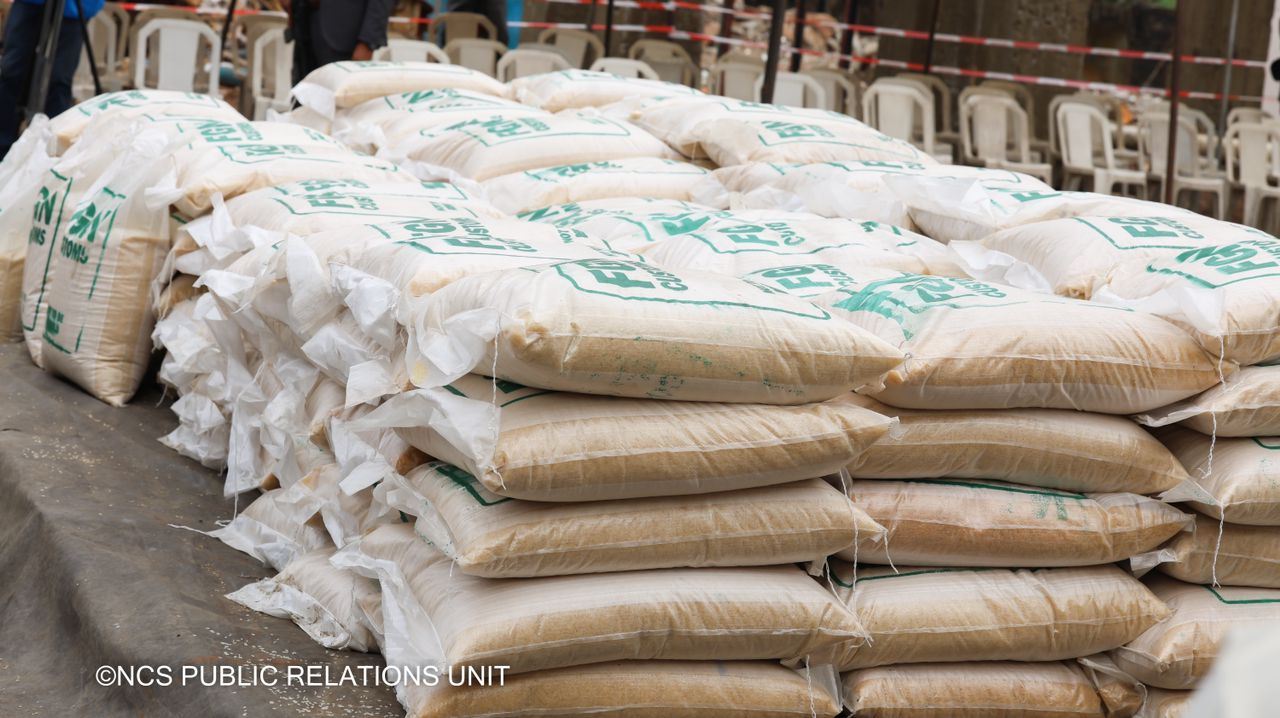Customs Warns Against Reselling Of Seized Food Items, Insists NIN, N10,000 As Criteria For Collection
By Lola Adesokan
The Nigeria Customs Service (NCS)
has disclosed requirements needed for accessing the seized food items intended for distribution to ordinary Nigerians in the face of the current hardship.
The criteria for every Nigerian to benefit from the initiative include possession of a verifiable National Identification Number (NIN) and a token of N10,000 to obtain a 25kg bag of rice.
Speaking to newsmen on Thursday at the Customs ‘ Zonal Headquarters, Yaba Lagos , Comptroller General of Customs (CGC), Bashir Adewale Adeniyi, stated that the items to be disposed formed part of the goods seized by the service in recent time.
Adeniyi stated that the service has noticed that some people whom he described as saboteurs have started moving food items in large quantities out of the country, which has also put pressure on the supply of such commodity thereby creating scarcity around the country.
He stated that government has been addressing the challenges faced within the economy, particularly the lagged effects of insecurity and the current exchange rate issues.
According to him, these challenges have exacerbated concerns about food security, leading to a concerning trend where food items are moving out massively to neighbouring countries.
The CGC listed some of the seized items to include: over 20,000 bags of assorted grains (Rice, beans, Maize, Guinea corn, millet, Soya beans) 2500 cartons and 963 bags of dried fish. Others include, Dried pepper, tomatoes, cooking oil, Maggi, Macaroni, salt, sugar, garri.
He stated that “This trend is not sustainable as it puts pressure on our productive capacity and threatens our food security.
- Advertisement -
“To address this, the NCS has remained responsive in carrying out its mandate to protect our borders from the inflow and outflow of restricted goods.
“One concerning trend noticed is the outflow of food items in huge quantities, posing a threat to our food security. It should be noted that the condition for the export of any item is only met upon fulfilling sufficiency internally. In this regard, food items deemed not to fulfil these conditions are showing up in our interceptions made at the borders” Adeniyi added.
The Customs boss disclosed further that as part of the ongoing commitment to safeguarding the food security of Nigerians, the service has secured approval from the government to dispose of the seized food items to needy Nigerians at a discounted prices of N10,000 per 25kg bag of rice.
He hinted that the target groups for the discounted items include artisans, teachers, nurses, religious bodies, and other Nigerians within the Service operational areas but made it clear that no serving Customs officer is eligible to purchase of the food items. The reason is to reach out directly to members through these organized structures to ensure the maximum impact of this exercise.
He added that in order to ensure security and integrity of the initiative, the Service has put in place comprehensive measures which encompass robust security protocols throughout the process.
He hinted that officers will be closely monitoring the entire supply chain to prevent any misuse or diversion of the food items. “Moreover, we have established strict guidelines and eligibility criteria to ensure that the items are distributed only to those in genuine need.
“Additionally, we will be working closely with relevant agencies to ensure compliance with the terms of this program,” he quipped.
He said it is imperative that beneficiaries of this exercise understand that the items are not to be resold, adding that the service has taken a strong stance against any form of profiteering or exploitation of this initiative.
He however urge Nigerians to report any incidents of misuse or unauthorized resale of the seized food items. Stating that Nigeria Customs Service is fully committed to transparency and accountability in the process, and will not hesitate to take decisive action against any individuals or entities found to be in violation of the terms of the program.




Comments are closed.